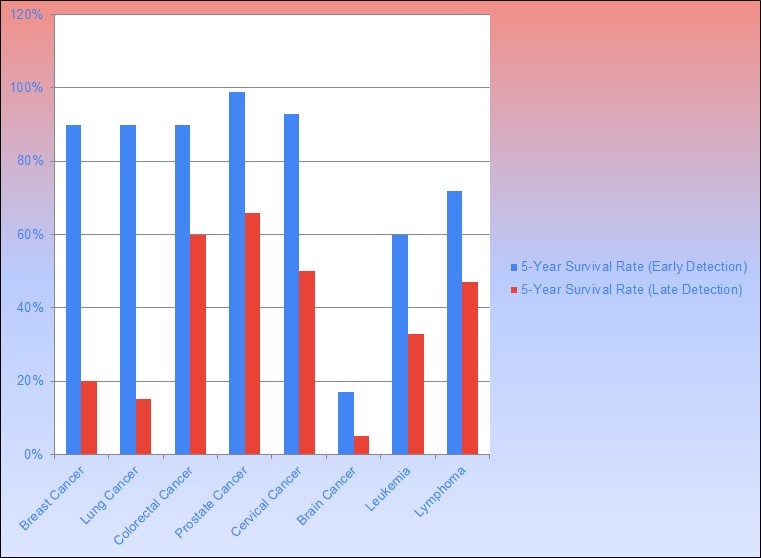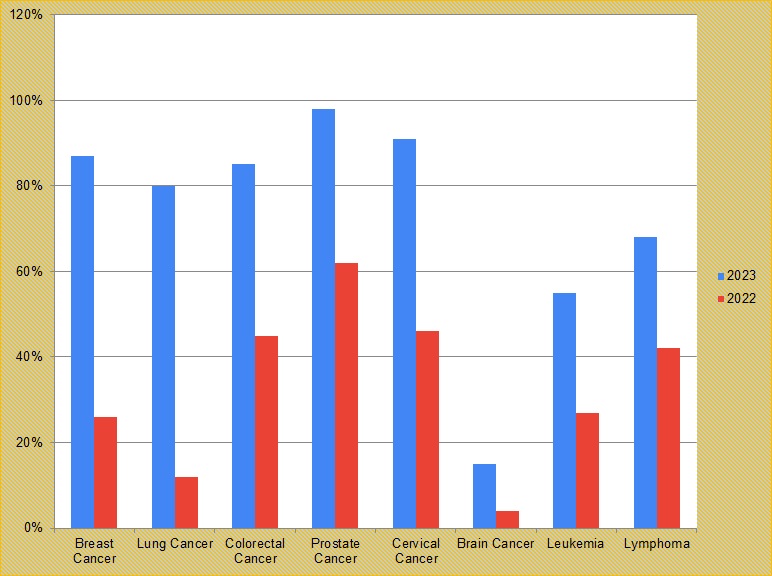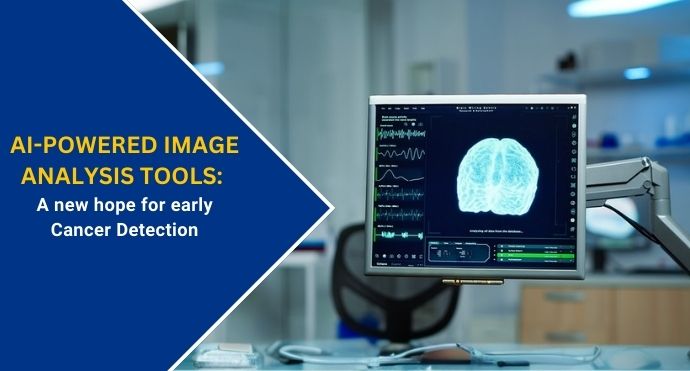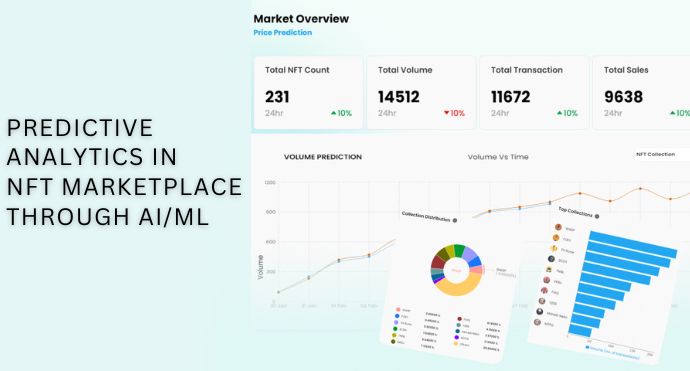Cancer is a leading cause of death worldwide, accounting for nearly 9.6 million deaths in 2020. However, early detection can make a big difference in the chances of survival. For example, the 5-year survival rate for breast cancer is 90% if it is detected early but only 20% if it is detected at a later stage.
In recent years, there has been a growing interest in the use of artificial intelligence (AI) to improve cancer detection. AI-powered image analysis tools can be used to analyze medical images, such as X-rays, CT scans, and MRIs, for signs of cancer. These tools can be trained on large datasets of images, which allows them to learn to identify subtle patterns that may be indicative of cancer.

In some cases, AI-powered image analysis tools have been shown to be more accurate than human radiologists at detecting cancer. For example, a study published in the journal Nature Medicine found that an AI-powered tool developed by the company Enlitic was able to detect lung cancer in CT scans with 90% accuracy, compared to 70% accuracy for human radiologists.
This is a significant improvement, as early detection of cancer can lead to more effective treatment and a better chance of survival. For example, the 5-year survival rate for lung cancer is 90% if it is detected early but only 15% if it is detected at a later stage.
The use of AI-powered image analysis tools is still in its early stages, but it has the potential to revolutionize cancer detection. These tools could help to identify cancer earlier when it is more treatable. They could also help to reduce the number of false positives, which can lead to unnecessary anxiety and invasive procedures.
As AI-powered image analysis tools continue to develop, they have the potential to make a significant impact on the fight against cancer. These tools could help to save lives by enabling earlier detection and treatment of cancer.

Here are some of the AI image analysis tools that are being used for cancer detection:
Enlitic: This company has developed an AI-powered tool that can detect lung cancer in CT scans with 90% accuracy.
PathAI: This company has developed an AI-powered tool that can analyze whole-slide images of tissue biopsies for signs of cancer.
GRAIL: This company has developed an AI-powered tool that can detect cancer in blood samples.
Guardant Health: This company has developed an AI-powered tool that can detect cancer in stool samples.
Nvidia Clara Oncology: This platform from Nvidia can be used to develop and deploy AI-powered cancer detection tools.
The significant impact of AI-powered solutions in the fight against cancer:
Enhancing Medical Imaging:
Through AI algorithms, medical professionals can analyze vast amounts of medical images with greater accuracy, leading to faster and more precise cancer diagnoses.
Detecting Subtle Abnormalities:
AI excels at detecting subtle tissue changes, enabling early identification of cancerous growths that might be missed by traditional methods.
Reducing False Positives and Negatives:
AI-powered tools aim to minimize errors in cancer screenings, ensuring more reliable diagnoses and avoiding unnecessary stress or delayed treatment.
Personalized Treatment Plans:
By leveraging extensive patient data, AI assists in recommending personalized treatment plans, increasing the likelihood of successful outcomes.
Facilitating Remote Diagnostics:
AI-powered tools enable real-time and remote cancer screenings, providing access to early detection for patients in underserved areas.
Accelerating Research and Development:
AI-driven analysis of medical data accelerates research efforts, potentially leading to groundbreaking discoveries in cancer treatment and drug development.
Here are some of the challenges that need to be addressed before AI-powered image analysis tools can be widely used for cancer detection:
- The need for large datasets of images to train the AI models.
- The need to ensure that the AI models are accurate and unbiased.
- The need to integrate AI-powered image analysis tools into clinical workflows.
- The need to address the ethical implications of using AI for cancer detection.
The future of cancer detection is bright:
AI-powered image analysis tools are just one of the many ways that AI is being used to improve cancer detection. Other promising areas of research include the use of AI to develop new cancer screening methods and personalised cancer treatment.
As AI continues to develop, we can expect to see even more innovative and effective ways to detect and treat cancer. These advances have the potential to save millions of lives and improve the quality of life for millions more.



